Each year the Sustainability Studies organizes a Program Retreat to foster a strong sense of connection and belonging.
Career Options
As a field of study that is quickly gaining momentum and opening opportunities on a number of fronts, graduates can apply their skills in a diverse range of careers and disciplines, including:
Social Innovation
Leadership and Organization Change
Social Entrepreneurship and Social Enterprise
Green Technology Innovation
Social Movement Theory
Stakeholder Engagement Models and Cross Sector Collaboration
Public Policy and Regulation
CSR in Practice
Self-Regulation of Industries
Metrics for Sustainability
Ethical theory and Sustainability
Justice and Sustainability
Sustainability and Economic Development
Sustainability and Indigenous Knowledge
Research Areas & Student Profiles
Here's a look at what some of our current and recent students are doing!
 Stacy James, 2021 Cohort
Stacy James, 2021 Cohort
Stacy James is applying a sustainability lens to her research on natural pharmaceuticals. She is passionate about finding and developing natural medicinal products in a manner that benefits both the environment and society. See the full news story here.
Supervisor: Neil Emery
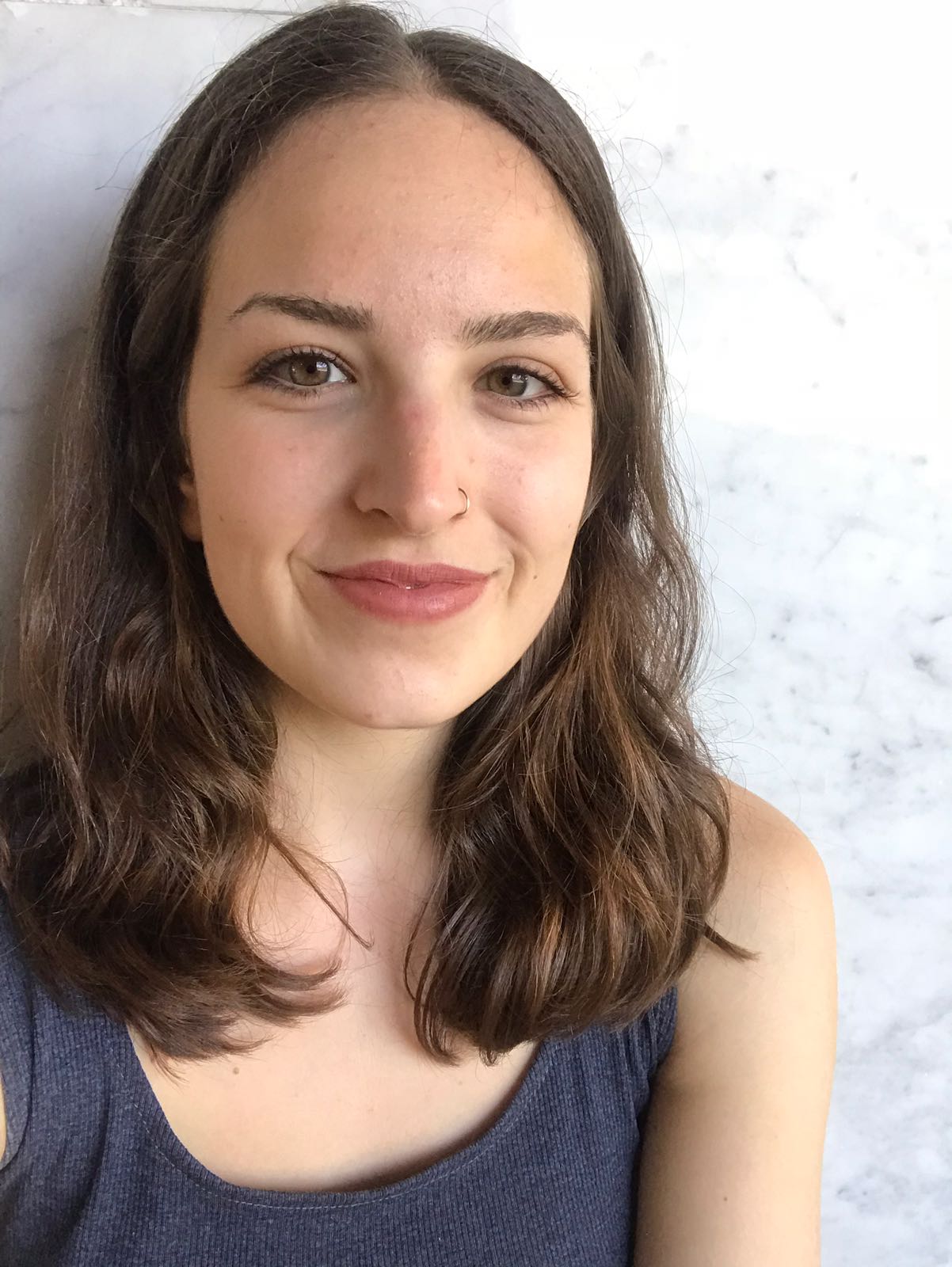 Brittany Curry-Sharples, 2017 Cohort
Brittany Curry-Sharples, 2017 Cohort
Brittany’s MA research focuses on better understanding facilitators of and barriers to food security in Inuit Nunangat (Inuit Settlement Regions in Canada) through statistical modeling. A systematic literature review and meta-analysis along with interviews with food security experts will inform the design of the statistical models.
Before starting her MA, Brittany worked in Nunavik, Northern Quebec in a variety of positions in elementary and secondary education, including as a behavioural teaching assistant, a literacy camp counsellor and a research training program coordinator.
She has an Honours Bachelor of Arts in International Development Studies from McGill University with a concentration in development economics. Her undergraduate research focused on exploring perceptions of agrochemical exposure in Panama.
Supervisor: Dr. Chris Furgal
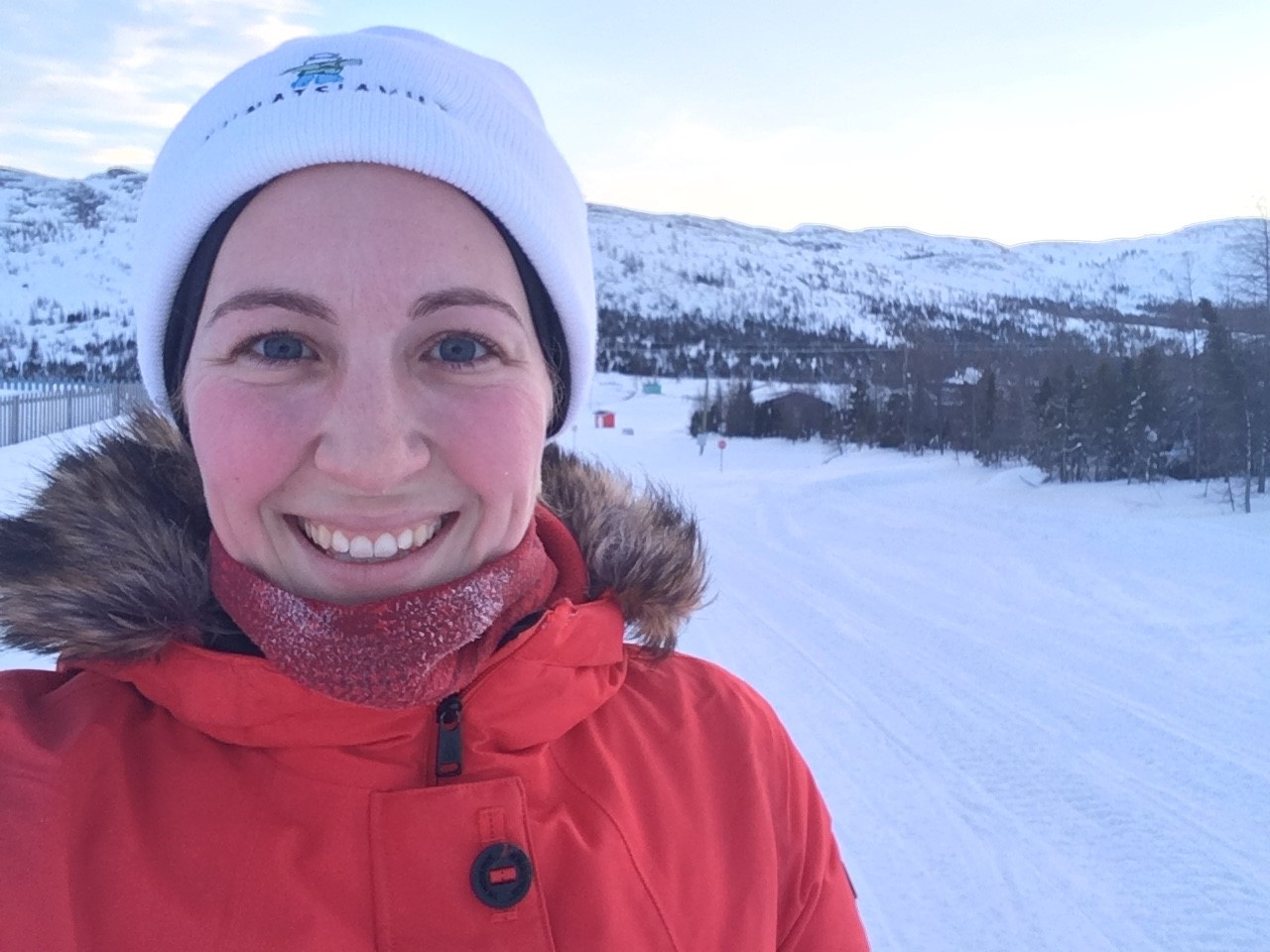 Katie Rosa, 2016 Cohort
Katie Rosa, 2016 Cohort
My research explores the role of Indigenous knowledge and values in wildlife management in ecosystems impacted by climate change. I am conducting semi-structured interviews and participatory mapping in the five Inuit communities of Nunatsiavut (northern Labrador), focusing on Inuit knowledge of and values related to the recently expanded moose population. In addition, I am completing a systematic literature review into the role of Indigenous knowledge and values in resource management across the globe. I am hopeful that my thesis will provide insights into more adaptive and responsive approaches to wildlife management in jurisdictions experiencing ecological change. View Katie's 3MT presentation!
Supervisor: Dr. Chris Furgal
 Kristen Potter, 2013 Cohort
Kristen Potter, 2013 Cohort
My research explores climate change adaptation actions in the Great Lakes Basin by examining different levels of governmental policy, programs, and strategies. A case study of the Toronto Region (Etobicoke Creek, Mimico Creek, Humber River, Don River, Highland Creek, and Rouge River) was chosen in order to scope the project. The main objective of this research is to survey the political landscape of climate change adaptation policy and determine its ability to be successful as a policy network by using a series of indicators. Examples of policies analyzed in this research include: the 2012 Great Lakes Water Quality Agreement, the Canada-Ontario Lakes Agreement on Great Lakes Water Quality and Ecosystem Health, and the Great Lakes Protection Act.
Supervisor: Dr. Tom Whillans
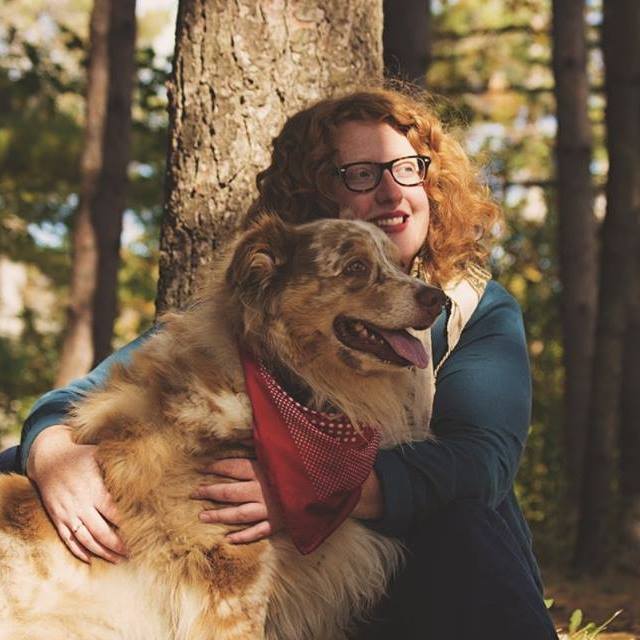 Katie Allen, 2014 Cohort
Katie Allen, 2014 Cohort
My research analyzes capacity gaps in the community development sector, and the potential for shared platform governance models to address systemic sector issues. My data was gathered using semi-structured interviews with practitioners, to gain a unique on-the-ground perspective. The purpose of my research is to explore alternative business models that will foster growth in community development and social enterprise, aiming to remove barriers for entrepreneurs with a focus on blended value creation.
Supervisor: Dr. Ray Dart
 Samantha Cunningham, 2014 Cohort
Samantha Cunningham, 2014 Cohort
My research seeks to present the role and impact that Anishinaabeg Youth engagement is having in the field of Indigenous language sustainability and revitalization. I am allying with Michi Saagiig Youth, within my community and the Peterborough area, to document these efforts. Through my work, I hope to present an authentic look at whether Youth agency in technological advancements and young people’s natural tendency towards linguistic innovation is having an impact on the future of the Nishnaabemowin.
Supervisor: Dr. Paula Sherman
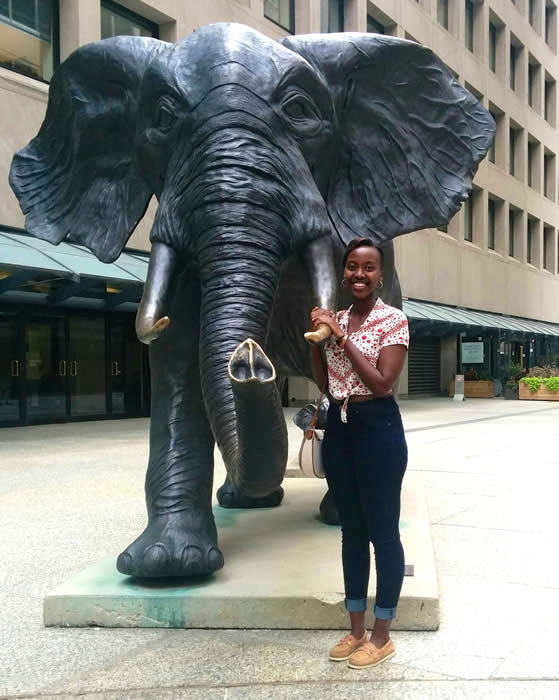 Faith Mwesigye, 2015 Cohort
Faith Mwesigye, 2015 Cohort
My research will focus on the UN Sustainable Development Goals that were recently agreed upon by member countries in 2015, specifically the sustainable development goal #15 around biodiversity conservation and ways these goals can be met sustainably globally, especially by countries in the global south. Through this research I hope to explore underlying narratives and worldviews informing the UN Discourse around development and see whether this has an influence on the development goals and how well they are adopted and implemented by the different countries. Uganda, my home country, is the global south country I have chosen as my case focus for this research.
Supervisor: Dr. Stephanie Rutherford
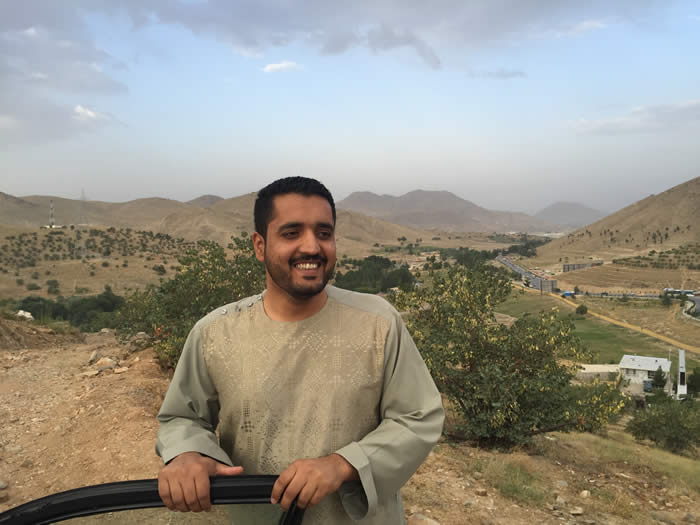 Roohullah Rahimi, 2015 Cohort
Roohullah Rahimi, 2015 Cohort
My research explores the applicability of “rights-based approaches” as part of a framework to guide the sustainable use of mineral resources in developing countries. The study will take a qualitative exploratory approach to develop a theoretical understanding of ‘rights-based approaches’ followed by an examination of critical contextual elements prevalent in developing countries’ that impact sustainable mineral resource practices. Through a case study on Afghanistan’s existing processes and strategies towards the development of the country’s vast mineral resources, the study will explore the potential value of rights-based approaches as part of a framework to guide sustainable mineral resource development practices in developing countries.
Supervisor: Dr. Haroon Akram-Lodhi
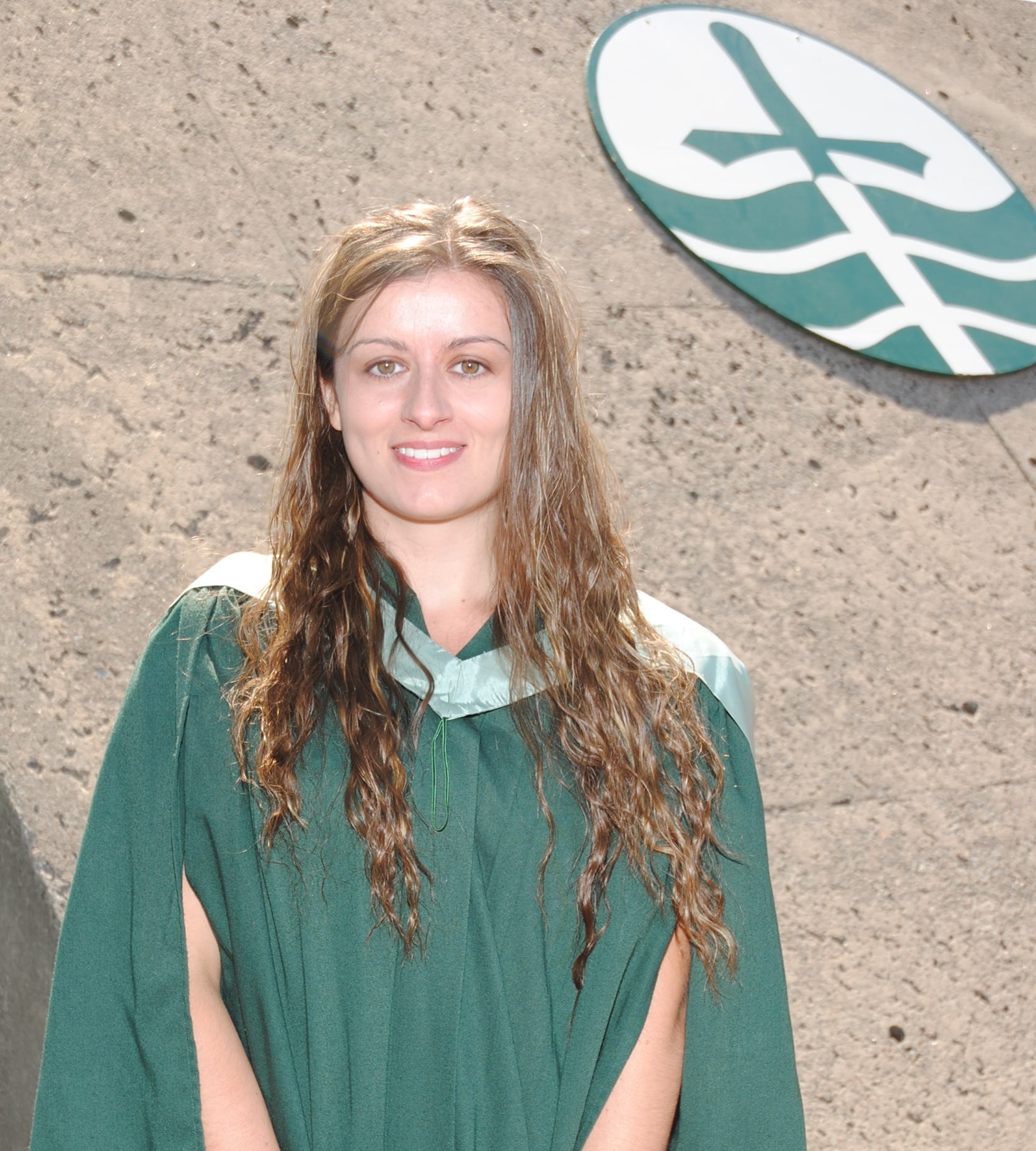 Lindsay Thackeray, 2015 Cohort
Lindsay Thackeray, 2015 Cohort
The area of ‘food’ in policy intersects many branches of the policy tree, including health, environment, economic and nutritional domains. My thesis topic is a proposed review and analysis of food-related policy in the Arctic region of Nunavik, Québec. I hope to explore this issue by investigating how policy gaps and deficiencies in multi-jurisdictional food policy contribute to prevalent food insecurity in the region. I hope that this research will contribute to discussion surrounding the need for more integrated food policy development in order to address the pressing issue of food insecurity, particularly in at-risk regions.
Supervisor: Dr. Chris Furgal
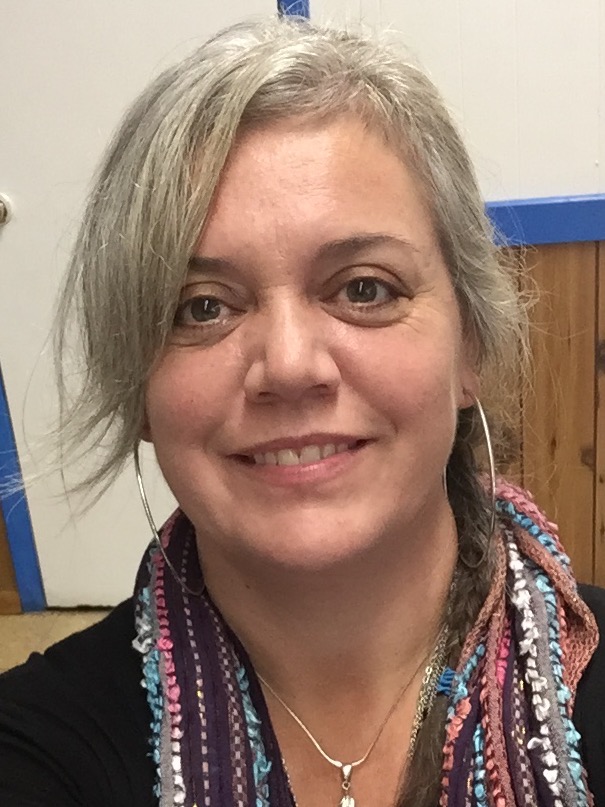 Nikki Auten, 2016 Cohort
Nikki Auten, 2016 Cohort
My name is Tayohseron:tye, in English I am Nikki Auten. I am a Kanyen’keha:ka (Mohawk) woman from Tyendinaga, born into the turtle clan. I am 42 years old and the mother of three beautiful spirits. I have attended Trent University and received a Diploma in Mohawk Language and an Honours Bachelor of Arts in Indigenous Studies. I have also graduated from Queen’s University’s Aboriginal Teacher’s Education Program and I am now working as a TA in the Introduction to Indigenous Environment Studies course (IESS2601Y) at Trent. I am actively involved in seed and food sovereignty efforts both here and in my home community of Tyendinaga. I pride myself in sharing knowledge around growing and preparing some of the traditional foods of my people, specifically the Three Sisters: corn beans and squash. I have also done some filmmaking about my language learning journey, which was shown at the Reframe Film Festival in 2018. Understanding that Indigenous languages hold the knowledge needed to move forward in environmental issues and issues of sustainability, language continues to be the driving force behind my education and my understanding about the world in which we live.
Supervisor: Dr. Dan Longboat & Dr, Stephanie Rutherford
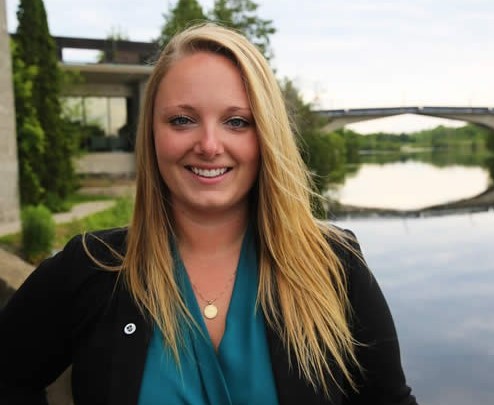 Sarah Healey, 2016 Cohort
Sarah Healey, 2016 Cohort
My Master of Arts Sustainability Studies’ thesis involves an extensive case study analysis of organizational transparency, Corporate Social Responsibility (CSR) standards and CSR reporting. My research consists of exploring successful sustainable CSR frameworks through an inquiry into current “best practices” within the organizational industry. The intent of this research is to generate awareness surrounding CSR and the ability organizations acquire to improve and achieve a superior society in which we live in.
Supervisor: Dr. Asaf Zohar
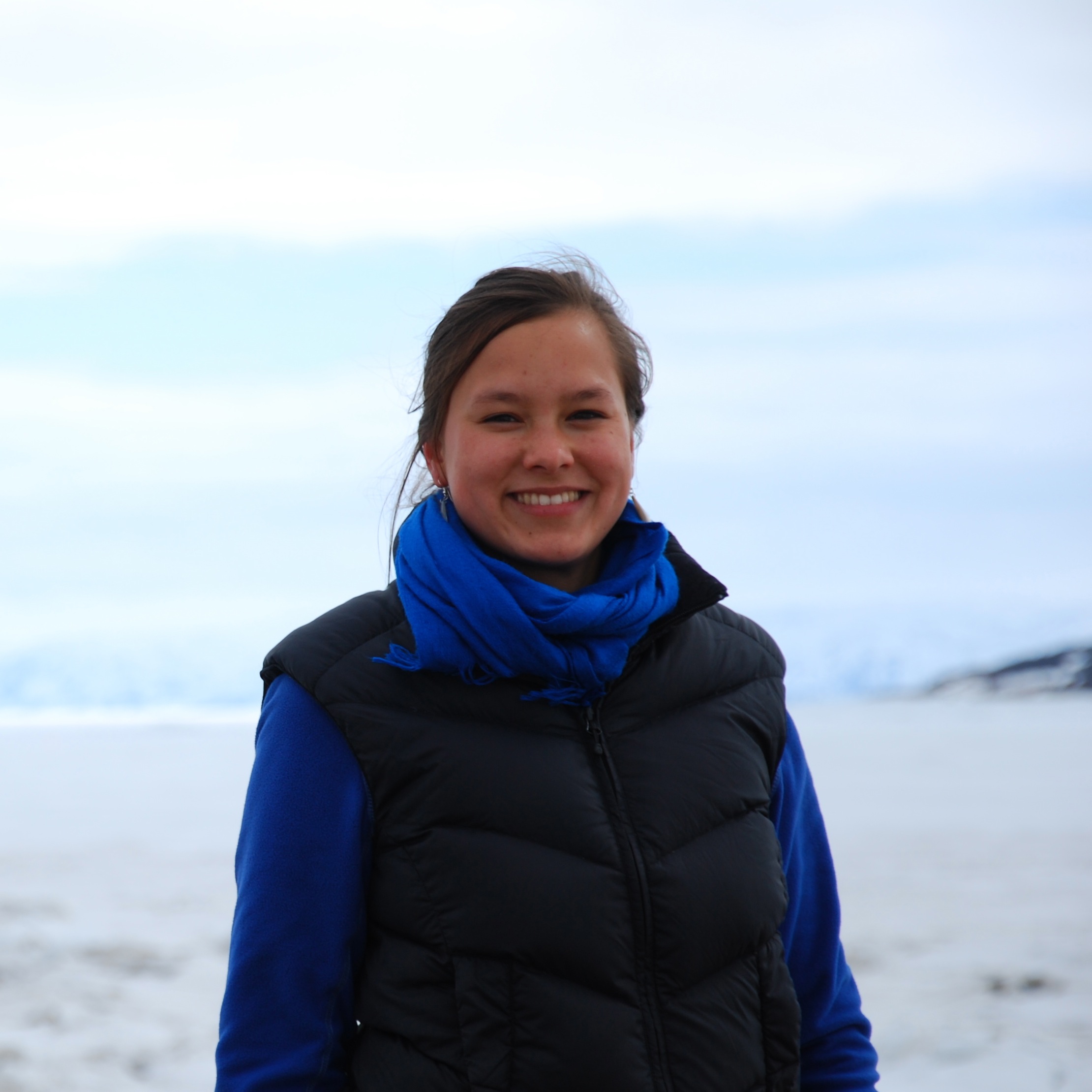 Shirin Nuesslein, 2016 Cohort
Shirin Nuesslein, 2016 Cohort
Shirin Nuesslein is a MA student in the Sustainability Studies program at Trent University. She is also a Teaching Assistant for IESS 3730 ‘Indigenous Peoples, Health and the Environment’, a tutor for the IESS Resource Centre, and a Research Assistant for the Health, Environment and Indigenous Communities Research Group. Shirin's thesis explores factors that influence health vulnerabilities in Indigenous populations. Specifically, she looks at the key factors influencing the food security status of Inuit Elders in Nunatsiavut, the Inuit Settlement Region of Northern Labrador. Findings will provide a more nuanced understanding of the vulnerabilities to food insecurity experienced by groups within the Inuit population and the conditions required to promote food security, and ultimately health, for all residents, including vulnerable groups within an already food insecure population. Shirin has a BA in Environmental and International Development Studies from Trent University, and enjoys working at the intersection of society and the environment in an Indigenous context.
Supervisor: Dr. Chris Furgal
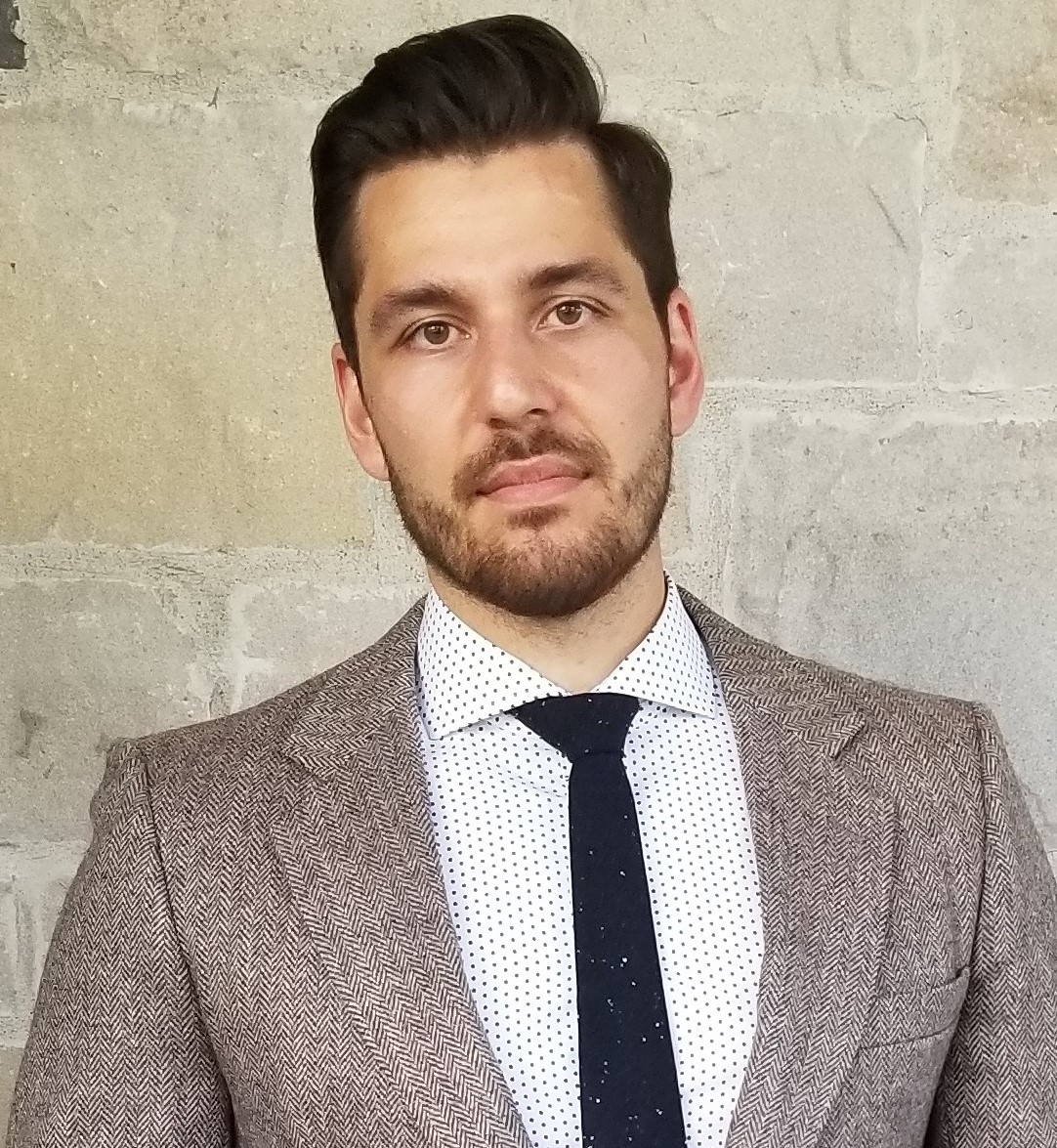 Alex Campagnalo, 2015 Cohort
Alex Campagnalo, 2015 Cohort
My research seeks to understand the motivations behind collectors when they buy recorded music. In particular, the extent to which environmental, economic, and cultural sustainability influence their collecting. Trent Radio Programmers were interviewed because of their regular use of recorded music and active participation in the local music scene. I foresee my research fueling critical conversations about digital media, artist welfare, and the state of the music industry.
Supervisor: Dr. Tom Whillans
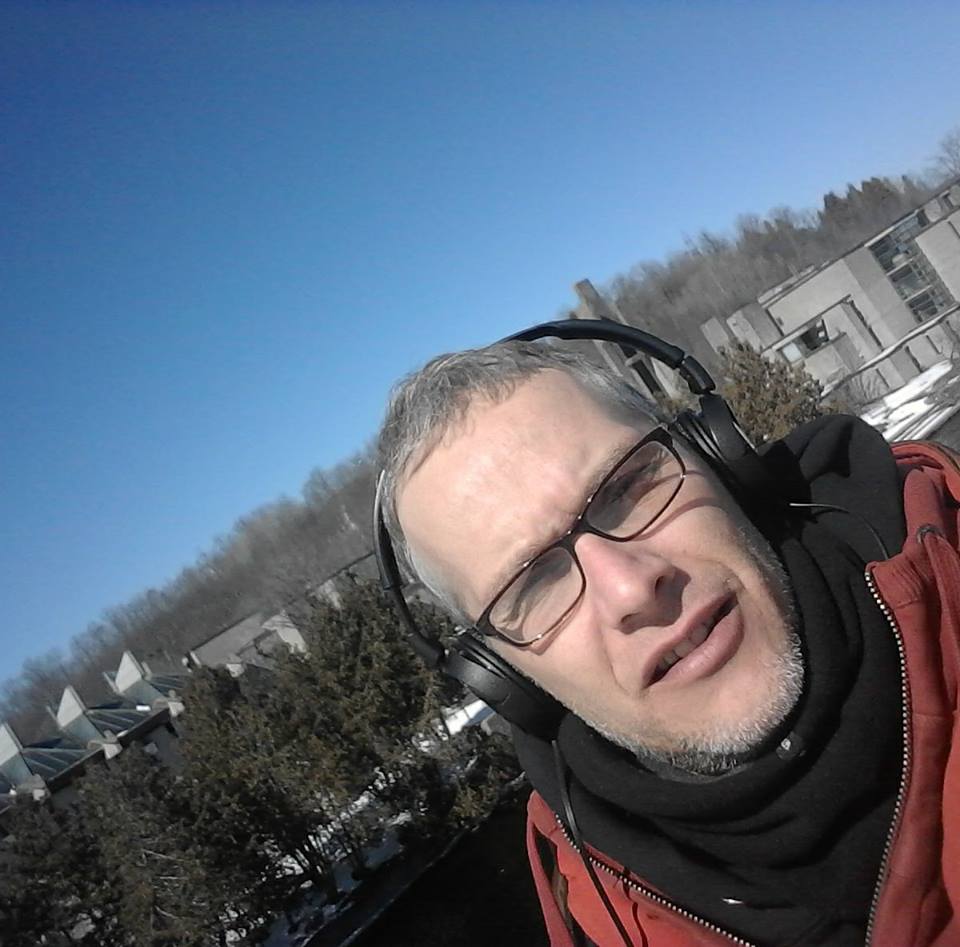 Adam McLaughlin, 2015 Cohort
Adam McLaughlin, 2015 Cohort
The focus of my research is on social sustainability and civic agriculture. More specifically, my thesis seeks to demonstrate the ways by which civic agriculture, as both an ethos and practice, is a means to, and an expression of, social sustainability. A fundamental point of departure for my work then, is that sustainability, as an idea of what is sustainable, is always and already contextual and that we will be ill served if we attempt to locate and fix a singular definition on what sustainability can be brought to mean. In this way, sustainability is treated much less as an end state than it is treated as a process that can bring us closer to a desired, yet unfixed, end state. As such, and with emphasis placed on collaboration, cooperation, dialogue, the incorporation of localized knowledge, environmental integrity and economic viability, civic agriculture is well situated to make significant inroads for improving our collective efforts for social sustainability: something that is evident when placed within the context of food security and farmer livelihoods. With a focus set on how we can do food differently, civic agriculture reflects the principles that are at home within the field of social sustainability and in this way is conducive to the realization of these principles.
Supervisor: David Holdsworth
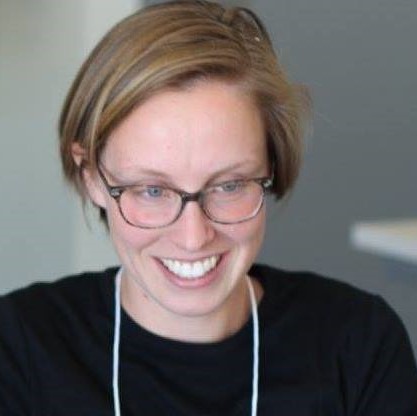 Emma Langley, 2015 Cohort
Emma Langley, 2015 Cohort
For her Master’s research, Emma is grateful to be collaborating with May Chazan, Lynne Davis, and Jean Koning on a life history and archival project about Jean’s life work with Indigenous-Settler solidarity initiatives. Emma is a research assistant and steering committee member for Aging Activisms and is a board member of OPIRG-Peterborough. Emma is a Settler Canadian and grew up in Glenburnie and Kingston, Ontario.
Supervisor: May Chazan
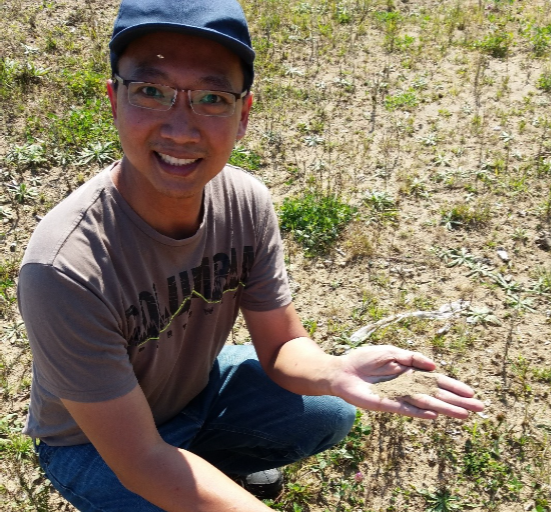 Kai Chung, 2017 Cohort
Kai Chung, 2017 Cohort
My research investigates the interacting roles of Cultural Capital and Social Capital in co-generation and co-management of codified knowledge through a conceptual Community of Practice (‘COP’) platform. Field data collection includes peripheral participant observations, in-depth interviews, and document reviews within a macro COP in Haliburton, Ontario - with at least 5 micro COPs situated therein. I expect this multi-level thesis research analysis to yield novel grounded insights on the importance of both capitals within the COP process, as well as to encourage more community leaders to adopt the COP knowledge platform for their local community sustainability and development projects. In addition, I am undertaking a research internship in Spring/Summer 2018 through a MITACS Accelerate grant to set up a research COP platform to design, upgrade, and test a unique passive greenhouse concept in partnership with a local Community Trust at Haliburton, Ontario, with potential to improve food security needs within the community.
Supervisor: Dr. Tom Whillans

